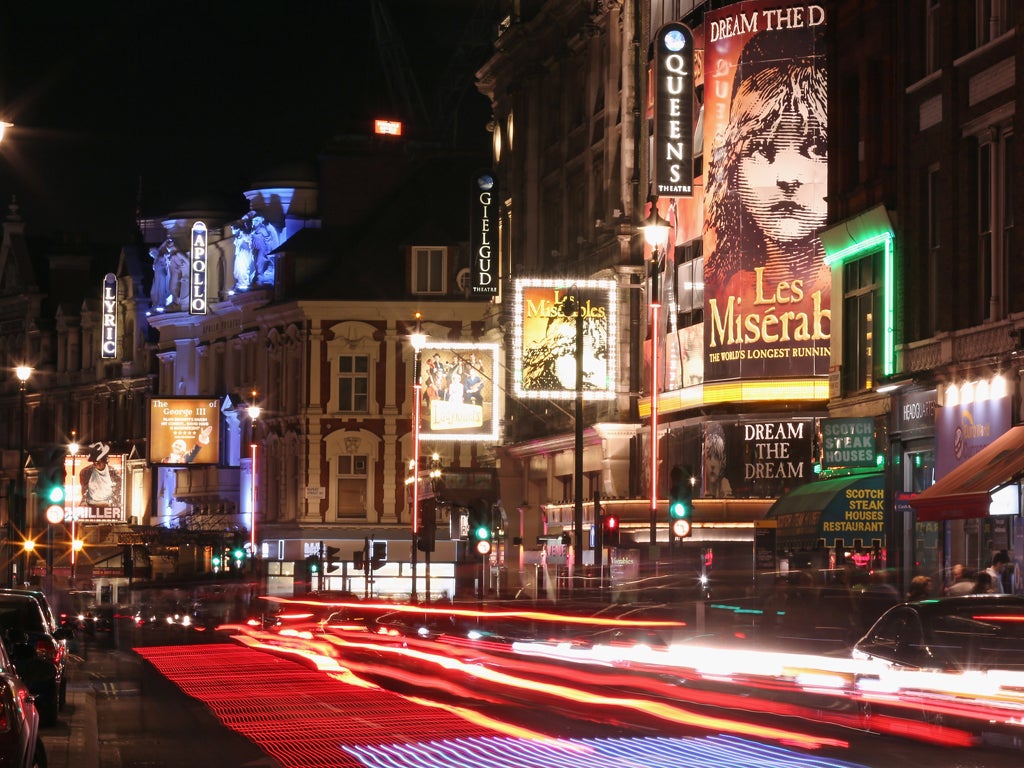Booking fees and restoration charges on tickets need to be abolished
Let’s make 2014 the year for audiences


Allow me to be a cultural curmudgeon for a moment. In wishing a Happy New Year to all involved in the arts, both artists and audiences, I also want to declare a wish that in 2014 we see the arts world thinking just a bit more about those audiences. So let’s make this the year in which:
Booking fees are abolished. These charges that go under a varierty of ludicrous names infuriate ticket buyers, and I will continue to campaign against them throughout 2014, especially booking fees online, when one does all the work oneself. These are an insult to the intelligence as well as to the wallet.
We see abolition too of compulsory restoration charges on tickets. We’ve heard much about the restoration levy on theatre tickets following the awful ceiling collapse at London’s Apollo theatre just before Christmas. But no one seems to be asking why on earth we as audiences are paying these restoration charges in the first place. West End producers and theatre owners are extremely rich men and women. Why should we have to contribute towards them maintaining their buildings? Maybe I’ve missed it, but I don’t recall them offering a share of the profits in return.
Institutions make sure they are doing enough for their audiences (and practising a bit of self-help) before complaining about cuts. A demonstration against cuts to the arts took place at the National Gallery recently. But the National Gallery, unlike the Tate, the Royal Academy and many other major museums, does not operate a Friends or Members scheme. That could net the institution hundreds of thousands of pounds a year and enrich the visitor experience with a private room for Friends. Don’t they like making money?
Our national companies, such as the Royal Opera, Royal Ballet and English National Opera, become — how can I put this — national companies. That means taking productions out of London, where there also happen to be taxpayers who fund them. This doesn’t have to mean constant touring, but once would be nice.
Those coming up with all sorts of new initiatives to bring in new, young audiences, realise that there’s no bigger inducement than cheap tickets. Make all theatre tickets the same price as cinema tickets for under 30s one night a week. Some producers tried this when I first suggested it a few years back. The results were immediate. This time it should be government policy for all theatres.
Venues provide us with informative programmes. As they get ever more expensive, not least at rock concerts, programmes seem to have less and less information. Theatre programmes should tell us where performers are from, where they went to school, and what parts actors actually played before, rather than just a list of plays they were in, with no clue as to which parts they actually played. Classical music programmes should give us some biographical information about the soloists, not just a list of upcoming recital dates in far-off places. Rock programmes could give us a few words to go with the pages of pictures.
Those are just a few changes that could lead to a more enjoyable evening out, and make 2014 the year that the audience experience is improved.
A highly questionable conviction
At the end of last year, one of the most significant cultural figures seemed to be the late Stephen Ward. The osteopath at the centre of the Profumo scandal 50 years ago was the title figure in the new Andrew Lloyd Webber musical and the subject of a book aiming to clear his name by the human rights lawyer, Geoffrey Robertson. Lloyd Webber and Robertson held a press conference as part of a joint campaign to have Ward’s 1963 conviction for living off immoral earnings overturned. Certainly, the conviction looks, at this distance, highly questionable. But the rush to present him as a totally innocent victim is also highly questionable. Ward introduced vulnerable teenage girls to rich, powerful, lecherous, middle-aged men. Surely, we no longer turn a blind eye to that.
Any planning at all?
I recall remarking a couple of years ago how bizarre it was (to put it politely) that the Charles Dickens museum in London was closed for restoration during the year of Dickens’ bicenenary. Now, we have another entrant for the bizarre (to put it politely) award. The Imperial War Museum in London is going to be closed for the next six months for redevelopment. That means that it will be shut for half of the year that is commemorating the 100th anniversary of the First World War. What brilliant planning.
d.lister@independent.co.uk
twitter.com/davidlister1
Join our commenting forum
Join thought-provoking conversations, follow other Independent readers and see their replies
Comments
Bookmark popover
Removed from bookmarks